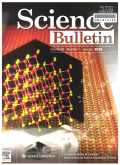- 钛学术文献服务平台 \
- 学术期刊 \
- 基础科学期刊 \
- 自然科学总论期刊 \
- 科学通报(英文版)期刊 \
Evaluating the reliability of microsatellite genotyping from low-quality DNA templates with a polynomial distribution model
Evaluating the reliability of microsatellite genotyping from low-quality DNA templates with a polynomial distribution model
基本信息来源于合作网站,原文需代理用户跳转至来源网站获取
摘要:
Molecular studies using trace DNA, such as from museum specimens, ancient or forensic samples and samples obtained noninvasively, often have a common problem of low quality of DNA templates. Amplification errors, such as allelic dropout and false allele, may arise during polymerase chain reaction (PCR) using such samples. A mathematical model which treats homozygotes and heterozygotes discriminately has been developed to measure sample quality and compute the confidence level of using multipletube approaches. We use plucked hair samples collected from 26 individual Sichuan snub-nosed monkeys (Rhinopithecus roxel- lana) to test the model. In this case, a confidence level of 99% can be achieved by three positive PCRs. If the sample quality is very poor and requires many PCR replicates, an alternative multiplestep genotyping method is recommended. This model enables researchers to optimize experimental protocols through pilot studies and obtain reliable genetic information using noninvasive sampling method.

推荐文章
A study of groundwater irrigation water quality in south-central Bangladesh: a geo-statistical model
Semivariogram
Ordinary kriging model
Salinity
Irrigation water quality index
GIS
Hydrochemistry
Distribution and assessment of hydrogeochemical processes of F-rich groundwater using PCA model: a c
Fluoride
Groundwater chemistry
PCA model
Hydrogeochemical processes
Yuncheng Basin
Source and yearly distribution of PAHs in the snow from the Hailuogou glacier of Mountain Gongga, Ch
PAHs
Snow
Source
Distribution
GC-MS
Hailuogou of Mt. Gongga
Study on Late Cretaceous-Cenozoic exhumation of the Yanji area, NE China: insights from low-temperat
Low-temperature thermochronology
Exhumation
Pacific Plate subduction
Yanji area
Late Cretaceous-Cenozoic
内容分析
关键词云
关键词热度
相关文献总数
(/次)
(/年)
引文网络
引文网络
二级参考文献 (0)
共引文献 (0)
参考文献 (0)
节点文献
引证文献 (0)
同被引文献 (0)
二级引证文献 (0)
2011(0)
- 参考文献(0)
- 二级参考文献(0)
- 引证文献(0)
- 二级引证文献(0)
引文网络交叉学科
相关学者/机构
期刊影响力
科学通报(英文版)
主办单位:
中国科学院
出版周期:
半月刊
ISSN:
1001-6538
CN:
11-1785/N
开本:
大16开
出版地:
北京东黄城根北街16号
邮发代号:
2-177
创刊时间:
1950
语种:
eng
出版文献量(篇)
9507
总下载数(次)
1
期刊文献
相关文献
推荐文献
- 期刊分类
- 期刊(年)
- 期刊(期)
- 期刊推荐
力学
化学
地球物理学
地质学
基础科学综合
大学学报
天文学
天文学、地球科学
数学
气象学
海洋学
物理学
生物学
生物科学
自然地理学和测绘学
自然科学总论
自然科学理论与方法
资源科学
非线性科学与系统科学
科学通报(英文版)2022
科学通报(英文版)2021
科学通报(英文版)2020
科学通报(英文版)2019
科学通报(英文版)2018
科学通报(英文版)2017
科学通报(英文版)2016
科学通报(英文版)2015
科学通报(英文版)2013
科学通报(英文版)2012
科学通报(英文版)2011
科学通报(英文版)2010
科学通报(英文版)2009
科学通报(英文版)2008
科学通报(英文版)2007
科学通报(英文版)2006
科学通报(英文版)2005
科学通报(英文版)2004
科学通报(英文版)2003
科学通报(英文版)2002
科学通报(英文版)2001
科学通报(英文版)2000
科学通报(英文版)2011年第9期
科学通报(英文版)2011年第8期
科学通报(英文版)2011年第7期
科学通报(英文版)2011年第6期
科学通报(英文版)2011年第4期
科学通报(英文版)2011年第36期
科学通报(英文版)2011年第35期
科学通报(英文版)2011年第34期
科学通报(英文版)2011年第33期
科学通报(英文版)2011年第32期
科学通报(英文版)2011年第31期
科学通报(英文版)2011年第30期
科学通报(英文版)2011年第3期
科学通报(英文版)2011年第28期
科学通报(英文版)2011年第27期
科学通报(英文版)2011年第26期
科学通报(英文版)2011年第25期
科学通报(英文版)2011年第24期
科学通报(英文版)2011年第23期
科学通报(英文版)2011年第22期
科学通报(英文版)2011年第21期
科学通报(英文版)2011年第20期
科学通报(英文版)2011年第2期
科学通报(英文版)2011年第19期
科学通报(英文版)2011年第18期
科学通报(英文版)2011年第17期
科学通报(英文版)2011年第16期
科学通报(英文版)2011年第15期
科学通报(英文版)2011年第14期
科学通报(英文版)2011年第13期
科学通报(英文版)2011年第12期
科学通报(英文版)2011年第11期
科学通报(英文版)2011年第10期
科学通报(英文版)2011年第1期

 免费查重
免费查重










